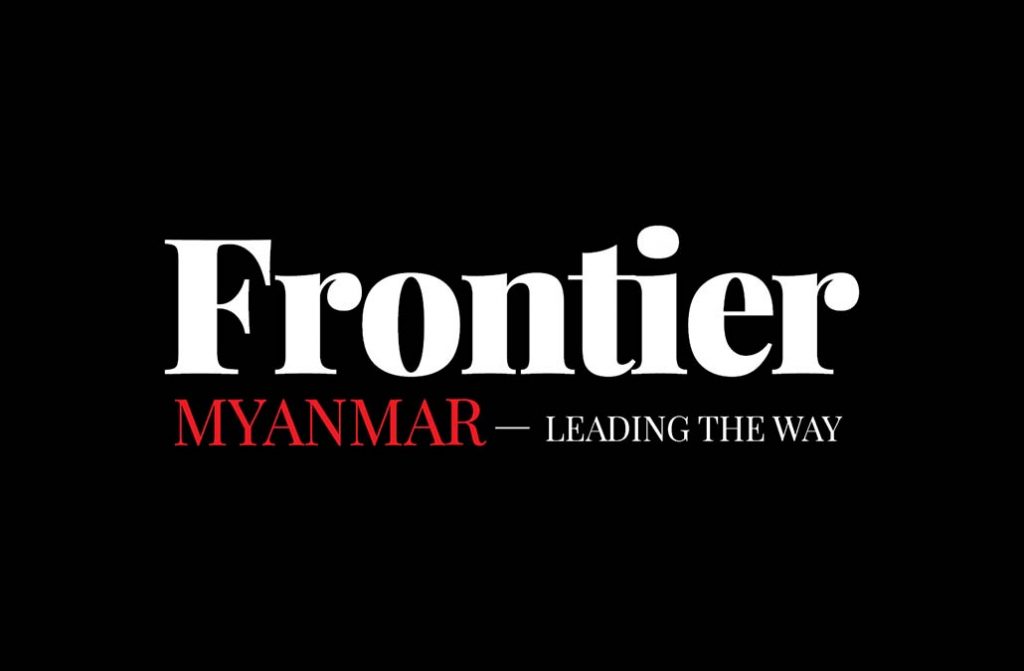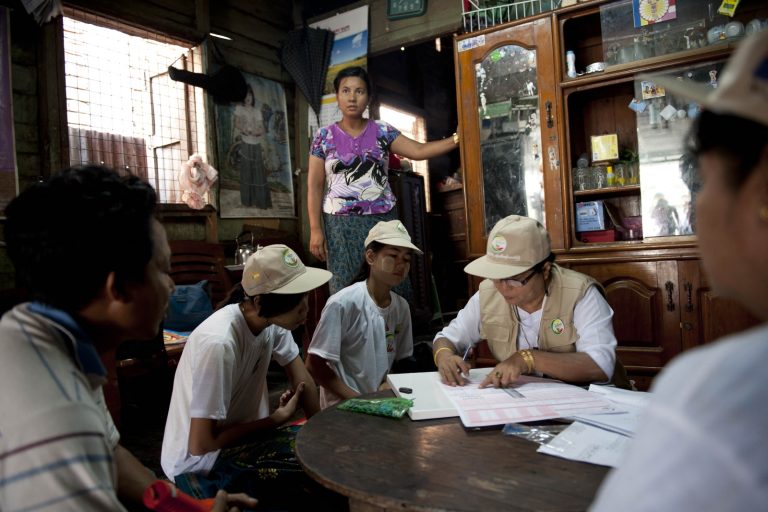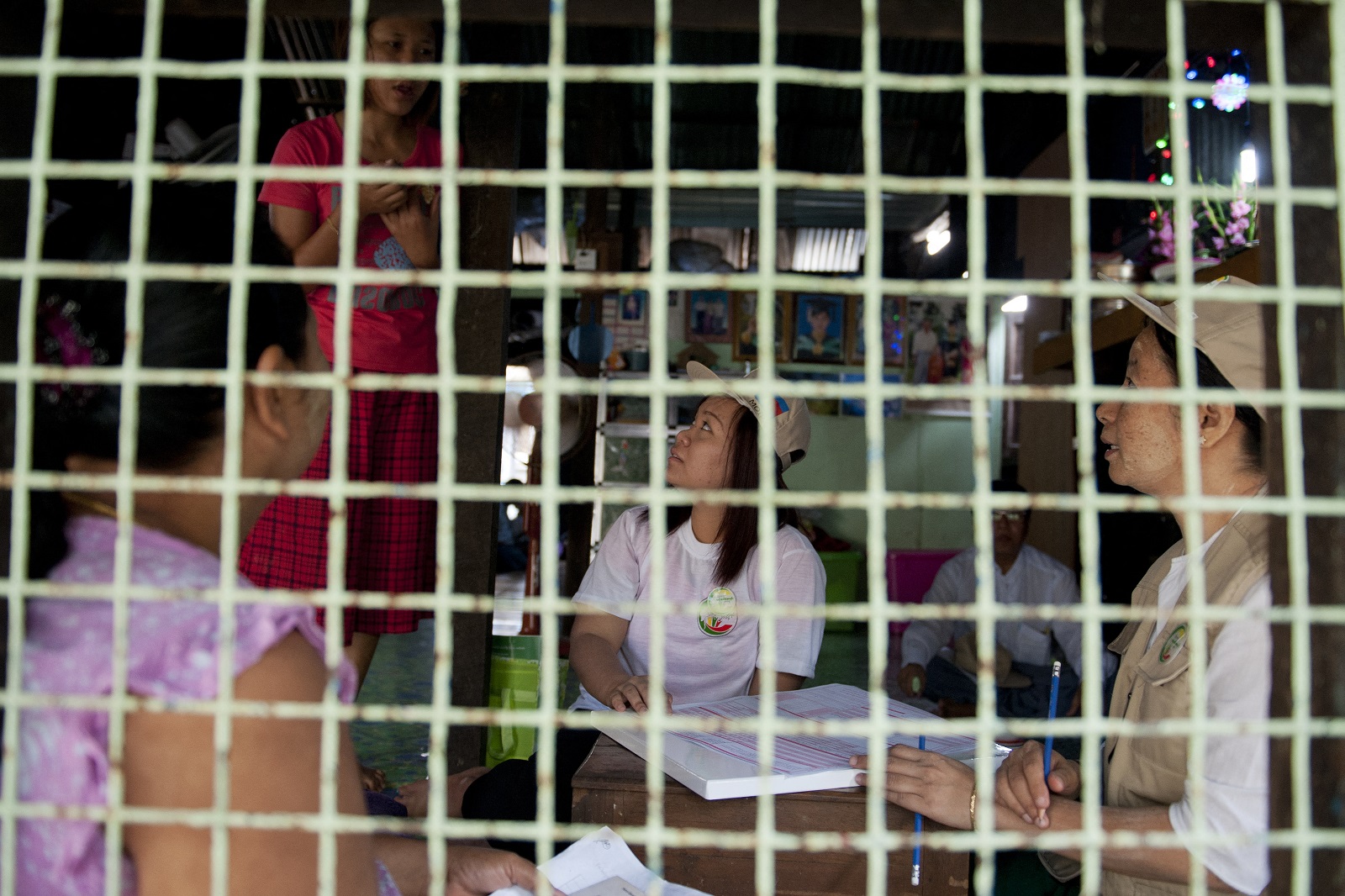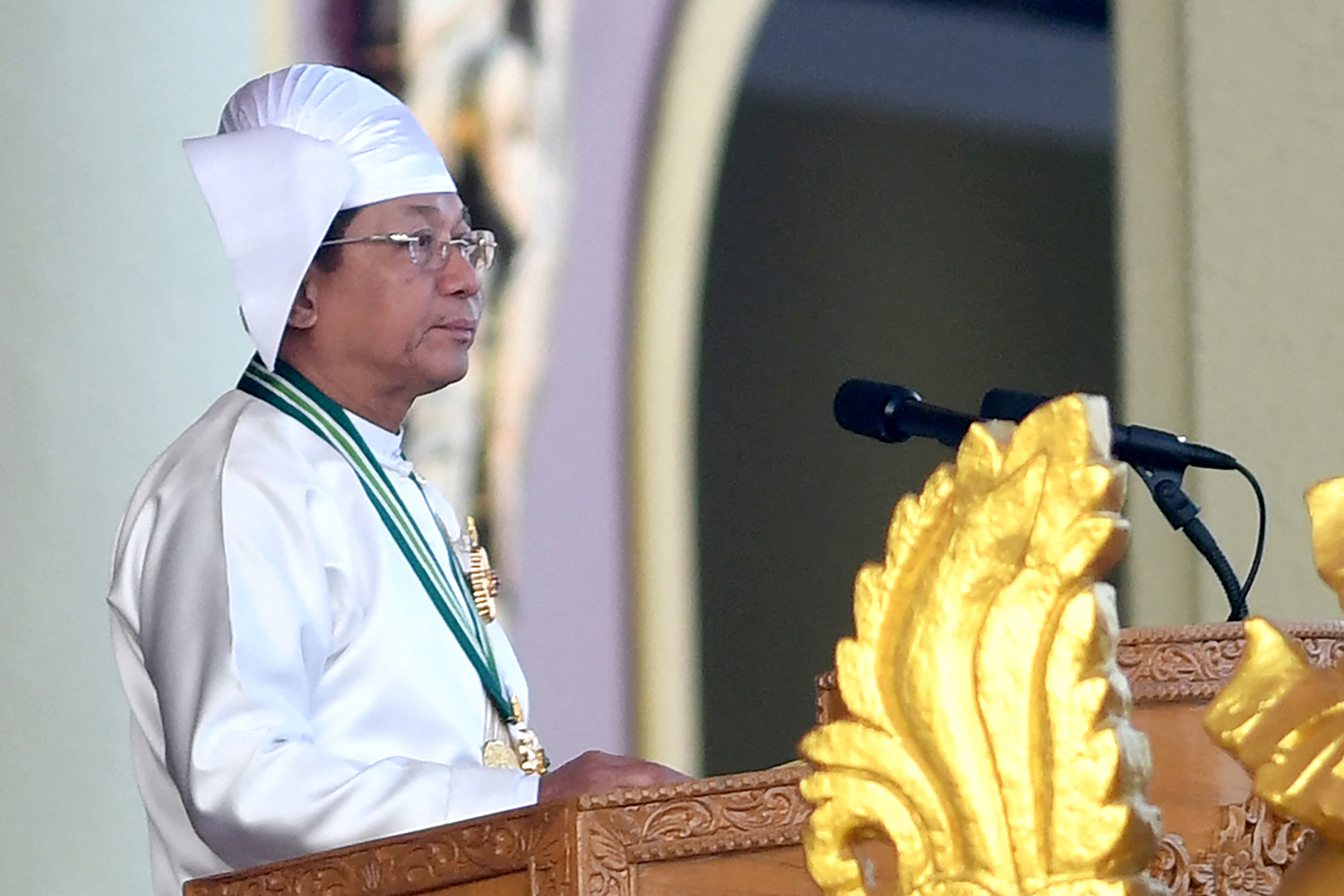The recommendations to Myanmar’s Union Election Commission will help to ensure a ballot untainted by fraud and misconduct.
A second report on preparations for the November 8 general election by the US-based Carter Center made recommendations to the Union Election Commission, the government and political parties aimed at ensuring a free and fair ballot. The August 19 report spoke of the need to address “significant issues,” and I would like to focus on its recommendations to the UEC, which has a referee’s crucial responsibility for the scrupulous conduct of the election.
First and foremost, the centre called on the UEC to promote public confidence in its ability to ensure the election is credible. The people have little confidence in the UEC, which is chaired by U Tin Aye, a general in the former military junta and a candidate for the ruling Union Solidarity and Development Party in the 2010 election. The fact that former military officers occupy most positions at every level of the UEC further reduces public confidence in its responsibility to be impartial.
To raise confidence in the UEC, the Carter Center recommended that it publish an electoral calendar and release more information about the process for updating voter lists, which have caused widespread disappointment and concern because of errors and omissions. The centre said the UEC should explain how the errors occurred.
Another recommendation to the UEC was to publicly explain the criteria for cancelling the vote in constituencies for security reasons.
The centre said the UEC must ensure that voters know what identity documents they must carry on election day to be eligible to cast their ballot. This is an important issue and clarification is essential.
The UEC has stipulated that those on voting lists who want to vote but do not have the necessary identity documents may be allowed to cast a ballot at the discretion of polling station officials. This is too general and gives too much power to polling station officials. Except for those who are correctly enrolled on voting lists and have the required documents, the right to vote is a decision is at the mercy of these officials. The Carter Center has recommended that the UEC should avoid confusion over this issue by issuing de nitive rules and regulations.
Another issue of concern is the eligibility to vote of internally displaced persons, those made homeless by civil conflict and natural disasters, and internal migrants. The center says the UEC must make transparent the rules and regulations under which these people can be included on voting lists. If not, the right of these people to participate in the election will be at the whim of the UEC hierarchy and the result may be fraud and unfairness.
There is also concern among political parties about the possibility of advance voting, which generated huge controversy in the aftermath of the 2010 election. There was a widespread belief that the UEC was complicit in the fraud and deception involving advance voting in the 2010 election, in which the USDP won 259 of the 326 elected seats in the Pyithu Hluttaw and 129 of the 168 elected seats in the Amyotha Hluttaw. To ensure transparency, the Carter Center has urged the UEC to ensure that all advance voting is monitored, including the casting of ballots, and that this should particularly apply to voting in military installations.
The centre has made a range of recommendations for effectiveness, independence and public confidence in handling post-election complaints. There is little public confidence in the ability of the UEC to provide for a fair and impartial dispute-resolution system and it has been heightened by the prospect of opposition candidates winning a majority of seats. Tribunals appointed by the UEC to handle complaints might be biased in favour of USDP candidates. The Carter Center has proposed that this could be avoided by allowing civil society groups and political parties to have a say in the appointment of independent experts to the tribunals.
The implementation of the Carter Center’s recommendations and suggestions is essential for a free and fair election and to raise public confidence in the UEC and its chairman.







